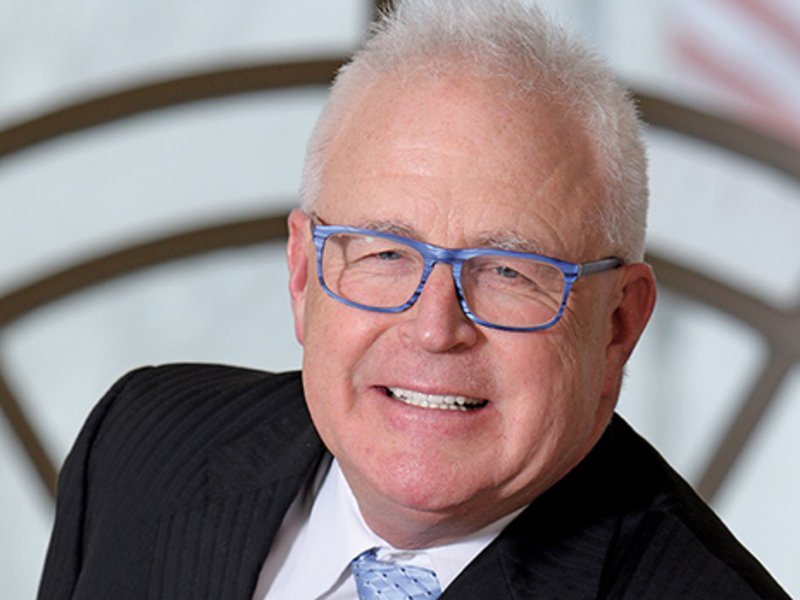
Across Denver this spring you could hear the joyous honking of cars lined up for drive-through graduation ceremonies in high school parking lots.
The adaption of this annual celebration to meet the physical distancing realities of the COVID-19 era vividly displayed our nation’s power of resilience — and the power of cars in helping us rise to this unprecedented challenge.
The same pandemic that has sorely tested the automotive industry is demonstrating its bright future as a key element of the U.S. recovery. Is it possible that one of our worst moments will pave the way for some of our best?
In a world with new dangers, there is a renewed appreciation of the personal vehicle as a place of safety and an important element in our nation’s recovery.
The nation’s privately owned vehicle fleet has become a lifeline and lifesaver.
Before the pandemic took hold in Denver, cars were increasingly being targeted as a problem that needed to be solved.
An alternative-mobility conference in Denver featured #BanCars stickers. And activists increasingly admitted on the record that their real agenda was to make driving harder.
“If you’re going to promote multimodal options, you’ve got to make single-occupancy cars more difficult,” Curtis Edwards of Conservation Colorado told Westword, one of Denver’s alternative weekly newspapers.
“We can’t be spending any more dollars on anything that actually increases the amount of driving or the number of cars on our roads,” Danny Katz, director of the Colorado Public Interest Research Group and chairman of the Denver Streets Partnership, said in the same article.
Even as its population rose, Denver was reducing parking and road capacity; car lanes were being converted to dedicated lanes for buses and bicycles, creating traffic congestion by design.
Although the vast majority of Denver commuters drive cars, one downtown street was converted so that three lanes were reserved for bicycles and buses, leaving just two lanes for cars.
I’m an avid cyclist, logging thousands of miles a year, but most people can’t just pedal their way to work at the construction site or to drop off the kids at school.
Sadly, the COVID-19 pandemic also has exposed the risk of an overdependence on mass transit built on the idea of putting lots of people in small, enclosed spaces. Bus and train ridership in the Denver area’s Regional Transportation District has dropped precipitously — it’s down by 70 percent since March.
Other major metro regions in the nation also are seeing significant declines. New Jersey Transit Corp. last month reported a 95 percent decline in ridership because of the pandemic. Chicago’s Metra and San Francisco’s Bay Area Rapid Transit saw one-day ridership declines that peaked at 97 percent, according to data compiled by StreetsBlog USA.
Ride-hailing services Lyft and Uber are struggling mightily, and some car-sharing services have either been shut down, such as General Motors’ Maven, or have pulled up stakes in North America, such as Share Now.
Even before the pandemic, our survey of 300 Denver voters in late January and early February showed that more than two-thirds of Denver residents who worked outside the home relied on a personal vehicle to get to and from work. A majority depended on vehicles to commute regardless of age, income, party affiliation or race.
Only 3 percent of Denver commuters said they preferred to bicycle and just 4 percent walked to work.
The automobile has always stood for freedom. Today, those chaffing at stay-at-home orders are going for drives with no destination — just to experience the sense of control and independence we feel behind the wheel.
A May 20 article in The New York Times, “Together alone: The cars as shelter in the pandemic,” began: “Once just a way of getting from one place to another, the car has been turned into a mini-shelter on wheels, safe from contamination, a cocoon that allows its occupants to be inside and outside at the same time.”
It notes the resurgence of drive-in movie theaters and the emergence of curbside pickup and drive-by birthday celebrations.
Caravans of cars have honored health care heroes and drive-through testing has helped the nation monitor and control the spread of the coronavirus. Drive-in concerts are keeping live music playing and drive-through weddings are keeping love alive.
The summer road trip is replacing more exotic vacations.
The public transportation system, even its most ardent backers admit, may never be the same.
Yet anti-car activists seem undaunted.
While Denver has temporarily closed some streets to allow for physical distancing, activists are pushing to make some of the closures permanent — even after the pandemic.
The coronavirus pandemic has brought a devastating human and economic toll. I believe cars will help us to meet this challenge and rise above it.